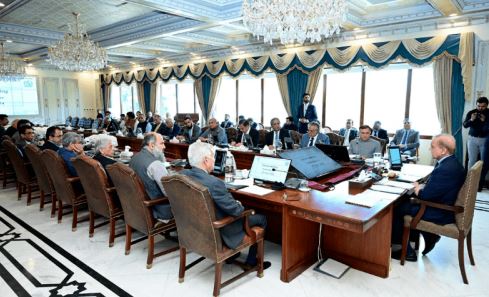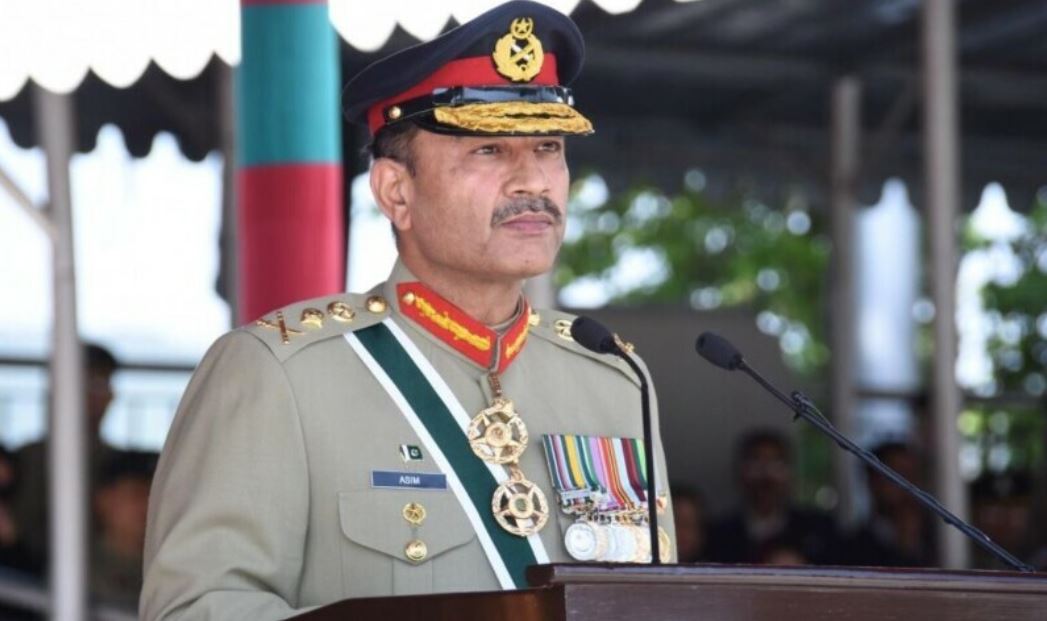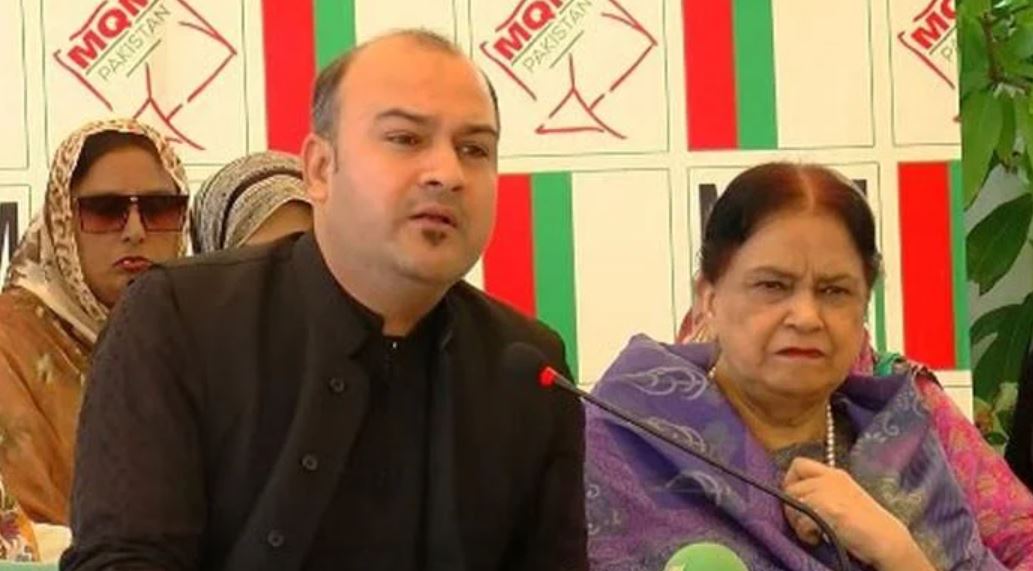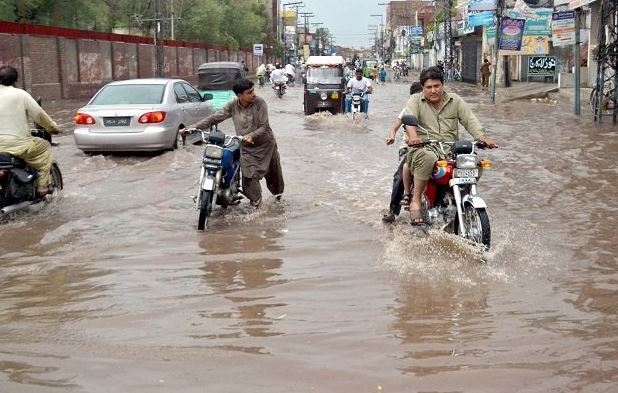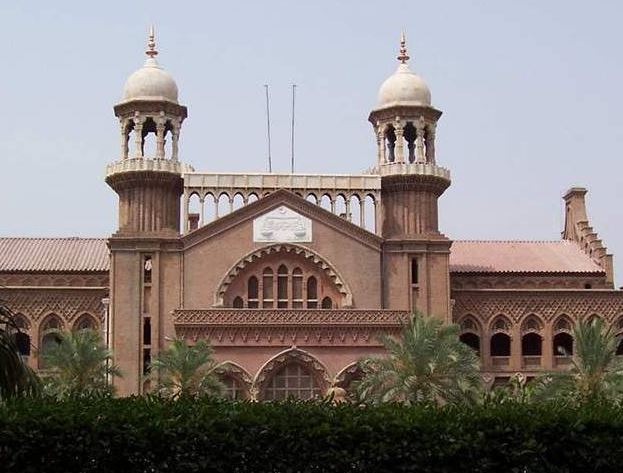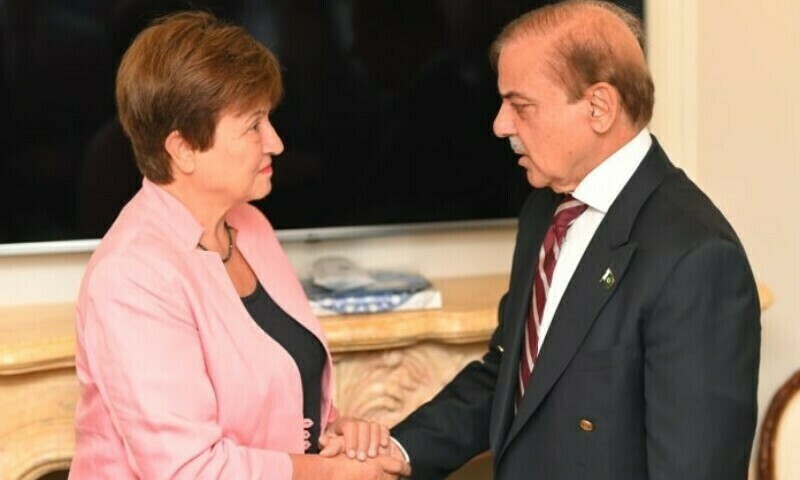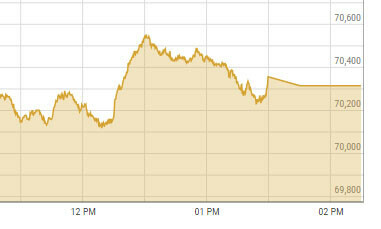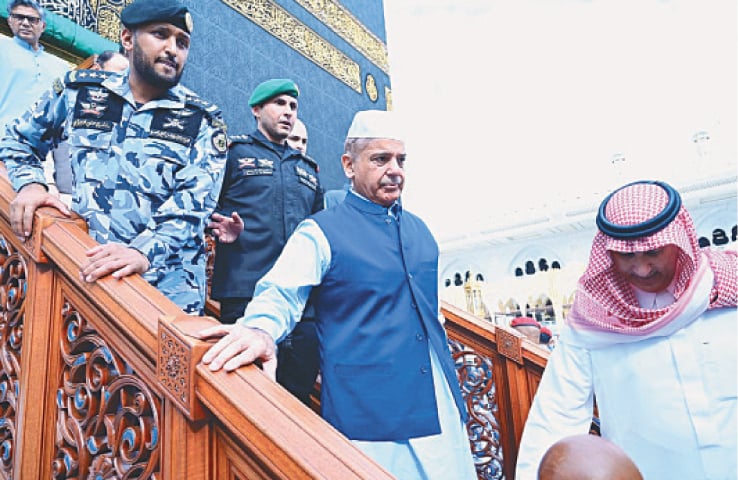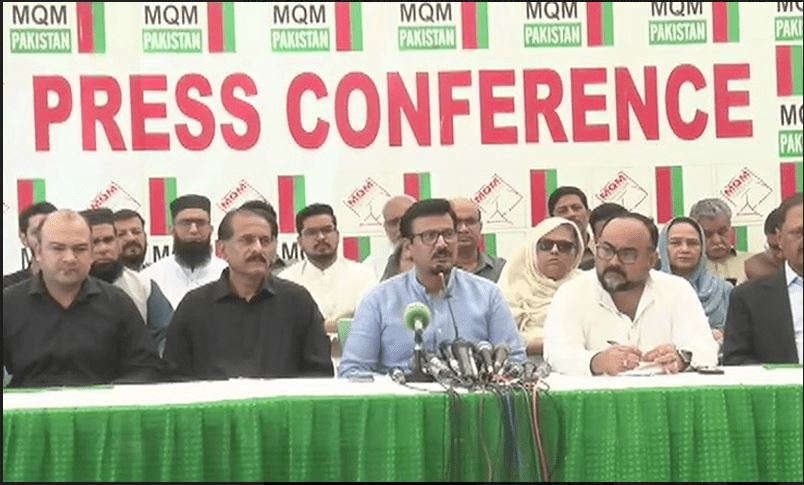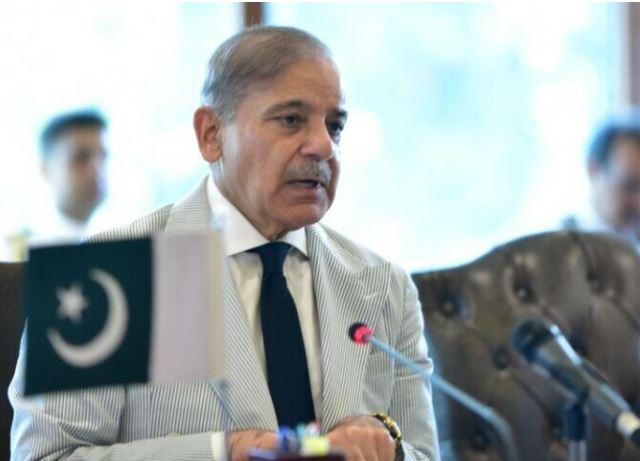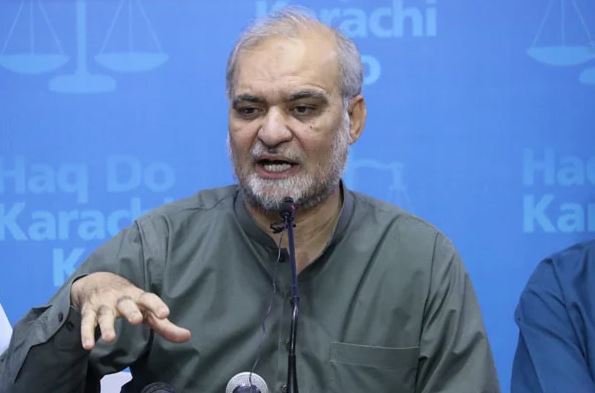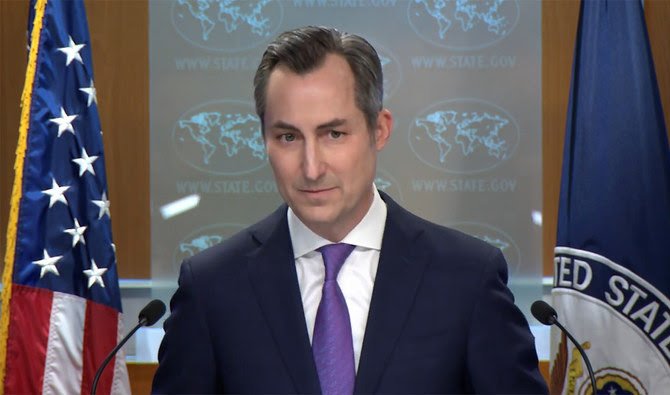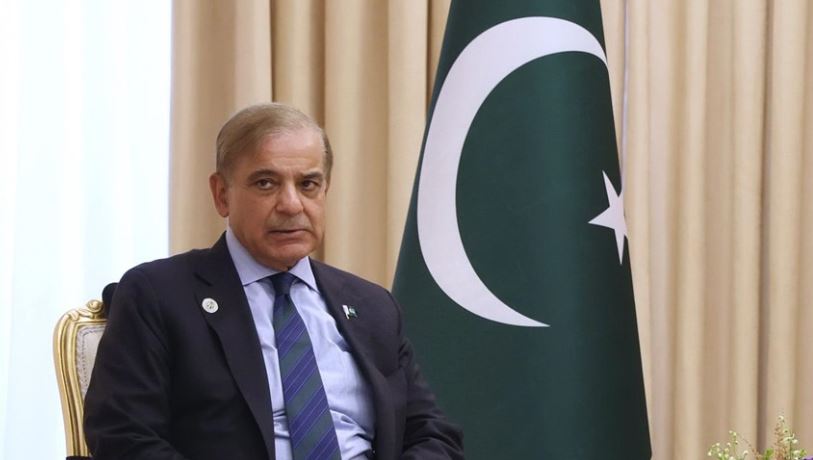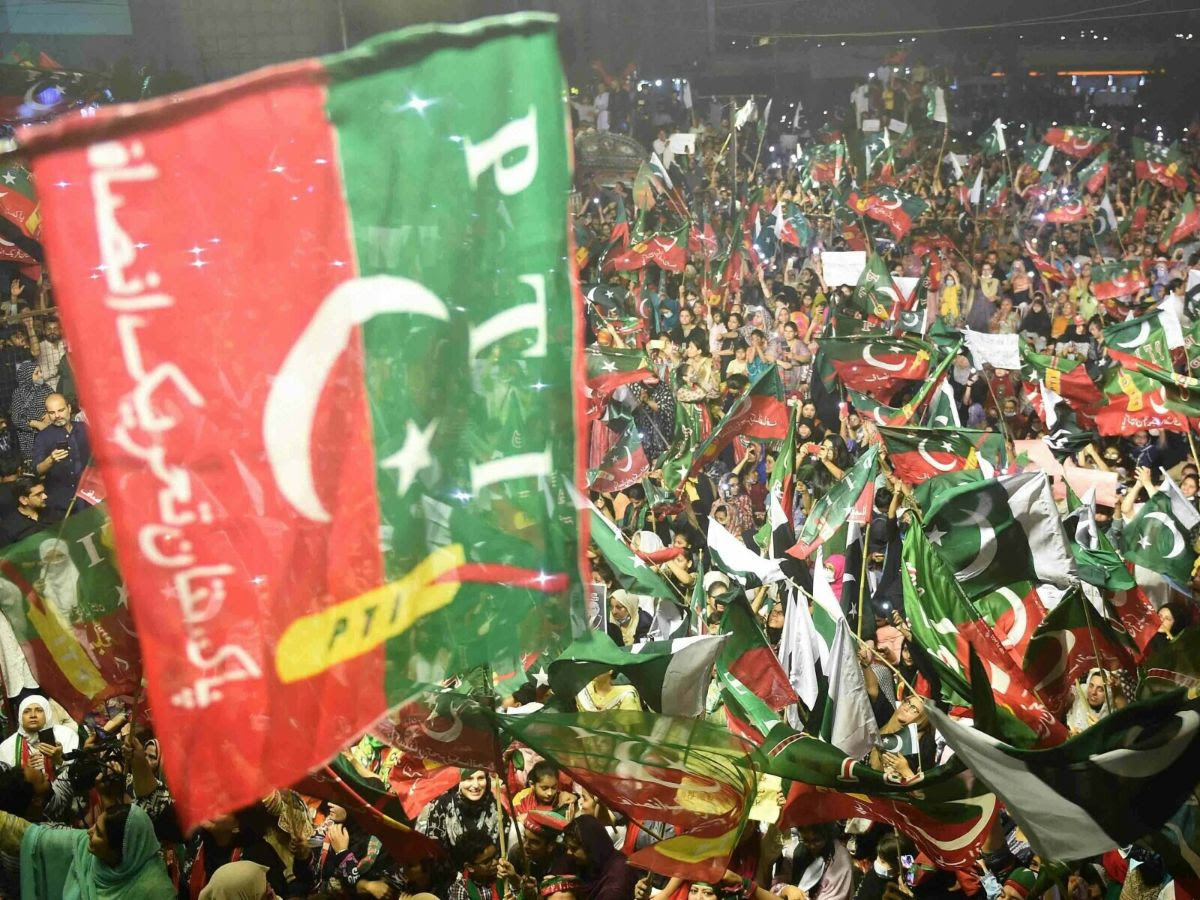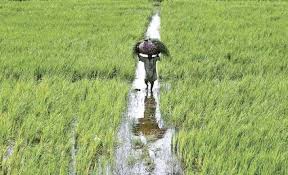In Focus
Rising Street Crimes In Karachi:
MQM-P criticizes the PPP government in Sindh On 7 April, the Muttahida Qaumi Movement-Pakistan (MQM-P) censured the Sindh government over an increase in street crime in Karachi in recent months. Earlier on 6 April, the Sindh High Court (SHC) Chief Justice Aqeel Ahmed Abbasi directed law enforcement agencies to launch a crackdown on criminals along with their handlers and facilitators in a move to curb street crime in Karachi and enhance the security situation.
During a high-level security meeting held last week, data showed that between 2022 and 28 March 2024, more than 250 Karachiites were shot dead while 1,052 others were wounded by street criminals. Also last week, the MQM-P demanded an operation against street criminals while hinting that it would part ways if the PML-N-led coalition government in case of a failure to end the killing of innocent people. While addressing a press conference in Karachi, MQM-P Senator Faisal Subzwari pointed out that under the PPP’s rule over the last 16 years, citizens in Sindh were not safe as no action had been taken against armed gangs and dacoits in Kashmore or against street crime in Sindh. He called on Interior Minister Mohsin Naqvi to visit the city and summon the Chief Minister of Sindh, Murad Ali Shah, asking them to form a committee. Subzwari stated: “We requested that a neighbourhood watch system should be implemented. If the Sindh government won’t, then we announce that we will.” Further, he questioned: “Is it possible that police checkpoints are not present at all entry and exit points of the city? Of course, they are [present]. Then is it conceivable that the market for stolen phones in the city runs without the patronage of the police?” Pointing out that mobile phones worth billions were stolen in the city every year, he asserted that these incidents should not be termed as “mere street crimes.” He added that Sindh Home Minister Ziaul Hassan Lanjar would have to fix his “attitude” as his position came with “heavy responsibility.” Subzwari asked the SHC’s chief justice to take note of the lawlessness, “call all institutions and ask what is happening, how it is happening and who is making it happen.” In the meantime, he assured that the MQM-P would hold meetings in every neighbourhood and would implement “whatever solution” possible.
While reacting to the press conference, Lanjar said that the PPP was prioritizing eliminating dacoits from the province, while the MQM-P was aiding criminals by making the police force “controversial.” He also emphasized: “The people of Karachi have trusted the PPP. The mayor is also from the PPP. We will never disappoint the people of Karachi.” (“MQM-P censures Sindh govt over lack of action against street crime in Karachi,” Dawn, 7 April 2024)
In Focus
World Bank demands broadening tax base
On 8 April, Dawn reported on the World Bank asking Pakistan to adopt a national fiscal policy by aligning the federal and provincial spending with constitutional mandates, merging federal and provincial revenue agencies into a single general sales tax (GST) collection agency, and taxing agriculture, capital gains, and real estate in the FY25 budget. It also asked the government to “implement the new Fiscal Responsibility and Debt Limitation Acts (FDRLA) at the federal and provincial levels, including through development and implementation of a national medium-term fiscal framework through the FY25 budget process.” These measures are expected to be incorporated in the next IMF programme which Finance Minister Muhammad Aurangzeb will discuss with the Fund in the following week.
On the GST, the the World Bank asked for tangible progress on GST harmonization across the federation, “including through rollout of the GST portal” and move towards “rate harmonization to facilitate tax compliance and the provision of input tax credits.” The government was also suggested to consolidate “all GST collection responsibilities with a single agency, which could then distribute revenues in accordance with constitutional provisions” to make administration more efficient. Additionally, the World Bank demanded actions to mobilize revenues from underutilized sources, especially those relating to the unfinished agenda of the 7th National Finance Commission (NFC) award of 2010: urban immovable property tax, agricultural income tax, and capital gain taxes. While the NFC recommended the federal and provincial governments to “streamline their tax collection systems to reduce leakages and increase their revenue through efforts to improve taxes and achieve a tax-to-GDP ratio of 15 per cent by terminal year 2014-15,” it was weakly drafted and unable to fulfil its objective.
With regard to urban immovable property tax, the World Bank said that the application of harmonized value tables should be updated annually based on variables such as inflation and sales records. For agricultural income tax, the government was asked to make a consistent definition of land area and set common minimum rates on the basis of crop acreage. On capital gains tax, the World Bank instructed the government to unify the treatment of builders and property developers, simplify taxes related to capital gains, and remove differential rates. These broader revenue reforms, directed at expanding the tax base, would require closing existing corporate and sales tax exemptions, and enhancing social protection to compensate poor households for negative impacts. (Khaleeq Kiani, “World Bank wants unified GST collection agency,” Dawn, 8 April 2024)
In Focus
Multiple militant attacks in KP and Balochistan
On 5 and 6 April, six security personnel and 12 militants were killed in separate incidents in Khyber Pakhtunkhwa (KP) and Balochistan. In Dera Ismail Khan, following a gun battle during an intelligence-based operation, eight militants were killed. As per the Inter-Services Public Relations (ISPR), security forces conducted the operation due to reports of the presence of militants who had targeted civilians and security forces in Kot Sultan, DIK. The forces recovered weapons and ammunition from the militants. Separately on 6 April, two suspected militants were killed in North Waziristan by security forces. Earlier on 5 April, a DSP and two cops were killed while a constable was injured in Lakki Marwat. The DSP and other police had set up a temporary checkpoint on the Peshawar- Karachi highway to ensure safety before Eidul Fitr; upon their return from the checkpoint, armed men shot at the police van. In a second attack on the same day, Constable Sanamat Khan was killed near his house in Sra Darga. The Lakki Marwat attack was condemned by Prime Minister Shehbaz Sharif. Who said that “cowardly terrorist activities” could not deter the KP police. The Chief Minister of KP, Ali Amin Khan Gandapur, also denounced the attacks. Separately, a police officer was killed in Bajaur after a remote-controlled improvised explosive device went off, and in the Mian Lal police post in Tank, a head constable of the CTD was killed by unknown people. Further, in Punjgaur, two suspected militants were killed as part of an intelligence-based operation, while a Levies official was killed in a landmine explosion in Dera Bugti. In response, the Chief Minister of Balochistan, Sarfaraz Bugti, emphasized that “the writ of the state will be upheld in every way by eliminating elements hostile to peace, elements involved in attacks on innocent citizens and security forces do not deserve any concession.” (“Six law enforcers martyred in attacks in KP, Balochistan,” Dawn, 7 April 2024)
In Brief
POLITICS
Committee finds that bus carrying Chinese nationals was not bulletproof
On 8 April, Dawn reported that the committee responsible for investigating the suicide attack in Bisham which killed six people last month found significant lapses in the security detail of the Chinese engineers along with a disregard for the standard operating procedures (SOPs). As per sources, the three-member committee was tasked with finding out if the movement of the Chinese nationals who were killed was in accordance with the SOPs. During the probe, “forensic audits” showed that the “vehicle carrying the Chinese nationals should have been bombproof but the vehicle was not even bulletproof.” This was a matter of shock as the company “that was required to provide bullet- and bombproof vehicles to transport Chinese workers, and duly paid for, failed to meet its contractual obligations.” Dawn referred to sources and said that the committee conveyed to the federal government that pinpointing inefficiencies was difficult due to a lack of unity of command in the China-Pakistan Economic Corridor (CPEC) task force. The investigation also revealed that the district police officer in Upper Kohistan, who was supposed to be informed of the convoy movement a week in advance, was informed late and went on to “totally forgot to convey the message about the Chinese nationals’ movement to anyone further.” (Umer Farooq, “‘Bus carrying Chinese was not bombproof’,” Dawn, 8 April 2024)
Bilawal Bhutto says eliminating terrorism is a “national duty”
On 7 April, PPP Chairman Bilawal Bhutto Zardari called on the federal and provincial governments to work together for the “complete elimination of terrorists and destruction of their nurseries.” His statement came following the militant attack in the Lakki Marwat area of Khyber Pakhtunkhwa, and the attack on a Chinese convoy in the town of Besham. Bhutto stated: “The nation is proud of the bravery of DSP Gul Muhammad and other martyrs. Those who sacrifice their lives to eradicate terrorists are our national heroes.” (“Centre, provinces should jointly end terrorism: Bilawal,” The Express Tribune, 8 April 2024)
ECONOMY
IMF asks government to increase gas tariff for CPPs from 1 July
On 8 April, The News International cited senior officials of the Energy Ministry, who stated that the IMF has asked the government to increase the gas tariff for captive power plants (CPPs) on par with the price of re-gasified Liquefied Natural Gas (RLNG) from July 1, 2024-25. The sources explained: “The government has no option but to increase gas prices for captive power plants on par with the RLNG prices. These plants have 30-35 per cent efficiency and most of the CPPs are installed in Sui Southern network.” Though the government had asked the IMF for time till December 2024 to switch up CPPs on national electricity grids, the IMF asserted that this should be done by June 2024 along with an increase in their tariff from 1 July 2024. Sources added that the gas tariff for CPPs is currently at PKR 2,750 per MMBTU. After the Oil and Gas Regulatory Authority (OGRA) increases the tariff, the CPPs under the IMF diktat will face the hike, though the government is considering increasing the gas tariff for the power sector as well. Gas companies had pleaded for a substantial increase in gas prices due to the PKR 600 billion shortfall they faced last year. However, since the consumers in the domestic sector are already paying high tariffs, the government does not want to further increase this. (Khalid Mustafa, “Under IMF diktat: Govt set to bring gas tariff for CPPs on a par with RLNG price from July 1,” The News International, 8 April 2024)
EXTERNAL
PM Sharif and Saudi Arabian crown prince meet in Makkah
On 7 April, Prime Minister Shehbaz Sharif met Saudi Arabian Crown Prince Mohammed bin Salman bin Abdulaziz Al Saud for an iftar dinner in Makkah, which was also attended by the Prime Minister of Bahrain and Crown Prince Salman bin Hamad bin Isa Al Khalifa. Mohammad bin Salman and Sharif appreciated the longstanding ties between both countries and reemphasized their commitment towards enhancing bilateral relations. The leaders also held a bilateral meeting after the iftar. (Syed Irfan Raza, “PM Shehbaz meets Saudi crown prince in Makkah,” Dawn, 8 April 2024)
Zardari and Erdogan hold talks on bilateral relations
On 7 April, President Asif Ali Zardari and his Turkish counterpart, Recep Tayyip Erdogan, held a telephone conversation to discuss matters of mutual interest and strengthening bilateral ties. Zardari felicitated Erdogan on the forthcoming Eidul Fitr and extended an invitation to him. (“Zardari, Erdogan discuss matters of mutual interest, bilateral ties,” The News International, 7 April 2024)
SECURITY
Bomb blast in Khuzdar kills two people
On 7 April, at least two people were killed and five others injured due to a bomb explosion in the town of Khuzdar. This attack was conducted at Umar Farooq Chowk, a shopping area that was filled with a large crowd of people. Following the explosion, the victims were shifted to the Khuzdar Teaching Hospital. The police stated that the “motorbike IED was detonated with a remote control.” (Abdul Wahid Shahwani, “Two killed, five injured in Khuzdar explosion,” Dawn, 8 April 2024)
Terror is back, says an editorial in The News
On 8 April, an editorial in The News International titled ‘Terror is back’ referred to how a recent uptick in terror attacks, including an attack in Khyber Pakhtunkhwa on 6 April and a suicide bomb blast in KP last week, prove how “terror is back” in Pakistan. In spite of the “calm the country achieved after great sacrifices by both civilians and troops,” in the first three months of 2024, Pakistan saw 245 terror attacks and counter-terror operations, leading to 432 fatalities and 370 injuries, as per the Centre for Research and Security Studies (CRSS). While only 20 per cent of the total attacks have been claimed, there has also been the emergence of a new militant group, the Jabhat Ansar al-Mahdi Khorasan. The editorial pointed out the “multifaceted challenges” facing Pakistan as militant armed groups are noew armed with “sophisticated and hi-tech weapons,” while destruction resulting from years of war has “created a generation of frustrated and dejected people who pick up arms to protest against the government’s apathy towards their causes.” Social media is also being used by militant groups to spread “propaganda campaigns” in order to “lure young recruits.” While the government has consistently said it will take “stern action” against extremist elements and has repeatedly warned Afghan officials of the “use of Afghan soil for terror attacks against Pakistan,” the editorial emphasized that the need for the interim set up in Afghanistan to take action against responsible groups. As violence and destruction in KP and Balochistan have “expelled the area’s residents and forced them to find meagre jobs either in urban cities or overseas,” the government should do “whatever it takes” to bring back peace and provide stability to the lives of civilians. Ultimately, as per the editorial, only a “safe Pakistan can transform into an economically strong Pakistan.” (“Terror is back,” The News International, 8 April 2024)
SOCIETY
PM Sharif reiterates commitment to making healthcare accessible for all
On 7 April, which was World Health Day, Prime Minister Shehbaz Sharif emphasized the government’s commitment to the provision of medical facilities to the whole population. He said that this year’s theme of ‘My health, my right,’ properly “encapsulates every citizen’s right to quality health service.” To ensure health for all, Sharif said that the government’s focus would “remain on improving primary, secondary and tertiary healthcare, medical education, preventive healthcare and improved governance.” They would partner and “encourage provincial governments to expand and upgrade health facilities, launch mobile health clinics for enhanced access, re-energize immunization and improve mental health services.” He highlighted the establishment of Medical City, Cancel Care Hospital, and the launching of the Health Card during the PML-N’s 2013-18 tenure. Sharif assured that while remaining committed to universal health coverage and insurance, special focus would be given to providing free healthcare services to low and middle-income families. He also appreciated the services of Pakistan’s “health professionals, paramedical staff, nurses, and other health workers who selflessly work day and night to provide health services to the nation.” (“PM vows medical access for all,” The Express Tribune, 8 April 2024)
PROVINCES
Balochistan: Government hospital employees rally against privatization plan
On 6 April, the Grand Health Alliance Balochistan held a rally against a plan to privatize government hospitals in Quetta. Government hospital employees, including paramedics and nurses, marched on main roads in Quetta and called for the removal of Balochistan’s Chief Minister, Mir Sarfraz Bugti, declaring him “incompetent.” Protestors and the alliance leaders said the conditions of the hospital should be improved in order to make healthcare more accessible, instead of privatizing them. They asserted that any attempt to privatize the hospitals would be met with resistance, and thus urged the government to reconsider its decision. (Saleem Shahid, “Paramedics in Quetta protest against govt hospitals’ ‘privatisation’,” Dawn, 7 April 2024)
WORLDVIEW
Israel’s genocidal war on Gaza shows no sign of abating, says an analysis by Maleeha Lodhi
On 8 April, an opinion by Maleeha Lodhi in Dawn titled ‘Defiance and devastation’ lamented that despite 33,000 Palestinians being killed and 75,000 being injured by “Israel’s relentless military assaults,” the war shows “no sign of abating” as little humanitarian assistance is reaching Gaza. The latest development was Israel’s air strike on foreign aid workers delivering food in Gaza, which killed six humanitarian workers and led to international criticism. Though Israel claimed it was an “unintended strike,” earlier in the war, it has targeted aid workers. Lodhi also highlighted details about the condition of the largest hospital in Gaza, Al Shifa, where the Israeli army left a “trail of death and destruction with hundreds of dead bodies found in the hospital complex” following a two-week operation. The opinion asserted that Israel has “defied the will of the international community reflected in the call for a ceasefire” by the UN Security Council (UNSC) on 25 March, the first time that the Council demanded an immediate ceasefire. The US’ abstention marked a “tentative policy shift,” and while Israeli Prime Minister Benjamin Netanyahu described it as a “clear retreat” from the previous position, the call was just confined to the month of Ramazan. Although UNSC resolutions are binding, and the UN Secretary General Antonio Guterres stated that the “resolution must be implemented,” Israel refused to comply and continued to show “utter disregard for global opinion.” Maleeha contended that the US is “the only country Israel would listen to,” and despite the administration placing little pressure on Israel in the past, there are signs that this is changing as the latest ‘Gallup poll’ found “majority of Americans disapprove of Israel’s military actions in Gaza.” US President Joe Biden for the first time called for an immediate pause in the war, and denounced the “unacceptable” humanitarian suffering in Gaza. Protests against Netanyahu in Israel have also intensified, which demonstrators demanding an end to the war to bring the hostages home. Lodhi concluded by questioning what Muslim countries have done to “mount pressure on Israel to stop it from continuing ethnic cleansing and committing war crimes.” Though countries such as Egypt and Qatar have helped mediate talks, “Muslim countries have fallen way short of the expectations of Muslims across the world.” (Maleeha Lodhi, “Defiance and devastation,” Dawn, 8 April 2024)
The War in Gaza may "destabilise the region around Pakistan" through Iranian actions, says an analysis by Shahid Javed Burki
On 8 April, in an opinion in The Express Tribune titled ‘Is the war in Gaza approaching Pakistan?’ Shahed Javed Burki questioned how the Muslim world beyond Palestine would react to the war in Gaza. As the US has urged Israel to limit its operations and Israeli military experts are expecting the Israeli Defence Force to order civilians to leave Rafah gradually, troops will try to kill Hamas fighters. As per a senior US official, a “major ground push into the city could further destabilise the region by forcing Palestinians into Egypt.” Michael Milshtein, the former head of the Palestinian department in Israel’s military intelligence agency, added that “very quickly clashes in Rafah could spill into Egypt, and accidents could happen between the IDF and Egypt.” Burki highlighted how Israel’s creation was supported by the West, and how the US is continuing to support it. Israel’s “unrelenting campaign against Hamas” affected its relations with the Muslim world, as Arab and non-Arab Muslim nations began reacting against the “hardship.” He also referred to the killing of Iranian General Mohammad Reza Zahedi of the Quds Force on 3 April as an instance of how relations between Israel and the Arab world began to suffer. The opinion cited the local elections in Turkey over the weekend on 30-31 March, which indicated that the “conservative elements in the Turkish society were upset with the results of the Israeli military campaign in Gaza.” Burki raised the question of how Iran would react to the loss of an important figure, and stated that “Iranian action or actions may come without warning and destabilise the region around Pakistan” in response to the killing of Zahedi. (Shahid Javed Burki, “Is the war in Gaza approaching Pakistan?” The Express Tribune, 8 April 2024) |
|


